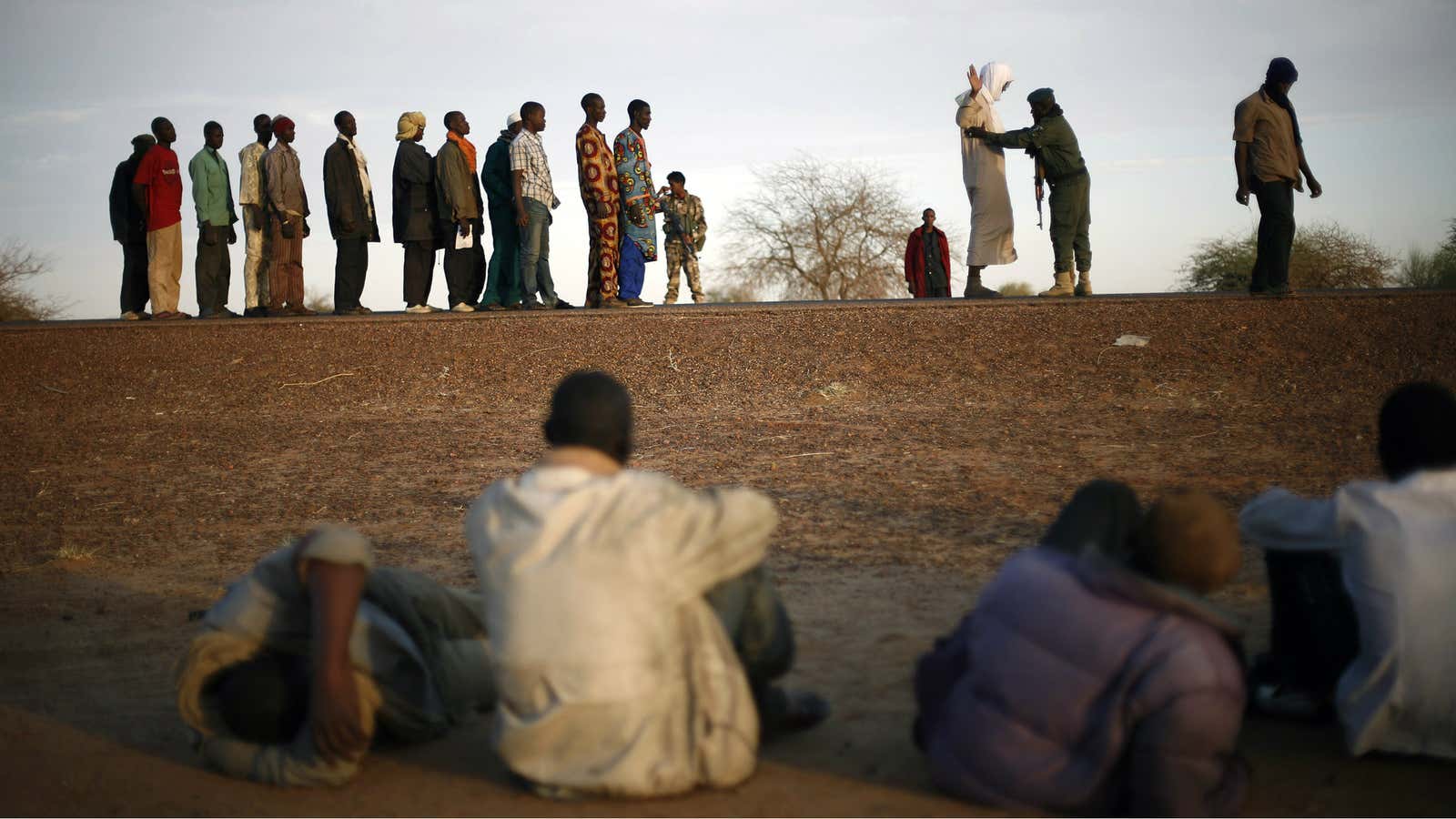This item has been updated.
A dispute among militia fighters over who was responsible for guarding an Eni-led refinery resulted in one death, seven injuries, and Libya halting 40% of its natural gas exports. It is not known when the gas flow—all of it to Sicily—will resume.
The Libyan fiasco was part of a violent weekend in northern Africa—in Mali, Chad said it had killed both of al Qaeda’s senior commanders for the Sahara. Those killed, according to the unconfirmed reports, include Mokhtar Belmokhtar, the militia and black-market leader who claims responsibility for a deadly January assault on a BP-run natural gas facility in Algeria. If true, the deaths could seriously disrupt militia activities in the region.
Over the last week, the US has stepped up its contribution of intelligence gathered by drones, leading to escalated French and Chadian attacks on militant hideouts in Mali.
The Libyan argument erupted on March 2 between former rebel fighters from two towns near the Mellitah oil and gas complex, which is run jointly by Italy’s Eni and Libya’s National Oil Corp. The fighters are among thousands of men who took up arms to oust Moammar Gadhafi in 2011, and now—in many cases to get them off the street—have been offered work as guards outside the country’s oil and gas businesses. But when you hire former rebel fighters, you hire men emboldened by their exploits, and in Libya that meant the closure of three major oil terminals last year, as they sought political and economic improvements.
In the case of Belmokhtar, Chad issued a communiqué that the 40-year-old militia leader—a leading force in the region’s black-market and kidnapping businesses—was killed March 2. Belmokhtar’s slaying, according to the statement, was among numerous deaths when elite US-trained Chadian forces destroyed a major militant base in Mali’s Ametetai valley, near the Algerian border. Belmokhtar claimed responsibility for ordering a January assault on the In Amenas natural gas complex in Algeria, where some three dozen foreign workers were killed along with about two dozen militants.
In addition, Chad President Idriss Deby announced March 1 that his troops had killed Abu Zeid, who along with Belmokhtar has led “AQIM,” the acronym for Al Qaeda in the Islamic Magreb.
Chad said it had sent samples from the two corpses to Algeria for DNA testing.
Absent confirmation, analysts expressed doubts about the reports. Belmokhtar and Zeid have not gotten along recently, and some experts said it is unlikely they would hide out in the same area. They also noted that Belmokhtar’s death has been inaccurately reported as many as seven times in the past. Intimately familiar with his own surroundings, Belmokhtar has often managed to mislead his pursuers, so the latest report of his death remains sourced only to the Chadian statement.
Yet his impact on the region’s oil and gas industry was underlined by the response to the Chadian report. Here is a tweet from Dubai-based analyst Robin Mills.

(Update, 12.15pm ET: Ricardo Fabiani of the Eurasia Group argues that even if Belmokhtar were dead, “the loss would have more symbolic than operational consequences,” since he had left AQIM to form his own faction. The death of Abu Zeid, AQIM’s “lieutenant in the Sahel,” would be a bigger blow to the movement, Fabiani says, though not a decisive one.)
